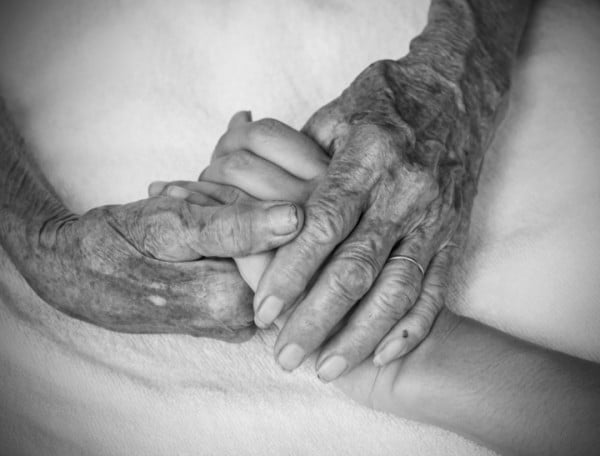
Miranda Richmond Mouillot’s childhood was outwardly secure, but she was haunted by the terrors visited upon her family during the Nazi occupation. Her grandmother Anna – a guiding force in her life – called Miranda ‘a survivor’. Anna – strong, colourful, a little eccentric – was a survivor too. And, as this beautiful extract from Miranda’s book The Fifty year Silence shows, her influence on her family was immense.
When I was born, my grandmother tied a red ribbon around my left wrist to ward off the evil eye. She knew what was ahead of me and what was behind me, and though she was a great believer in luck and the hazards of fortune, she wasn’t about to take any chances on me, her only grandchild.
My grandmother had fled or lost countless homes in her lifetime, and though she never fully resigned herself to living in America, she was determined to die in her house in Pearl River, New York, to which she had retired from her job as a supervising psychiatrist at Rockland State Mental Hospital. She would tell me this with some frequency, because my grandmother viewed death as an interesting dance step she’d eventually get around to learning, or perhaps a pen pal she’d come awfully close to meeting several times – no doubt this intrigued equanimity was part of the reason she managed to live so long.
My grandmother told me many things over the years, in a jumbled and constant flow of speech. I hung on to her every sentence, fascinated and admiring. Each word she said was like a vivid, tangible object to me, a bright buoy, a bloodred lifeline: MY Godt musckle VEG-eh-tayble sourrwvive.
That was her favorite word. She rolled it out of her mouth with Carpathian verve, inflected with Austro-Hungarian German and French.
You’re like me, Mirandali, she’d say. You’ll survive.
This was immensely comforting, because outside the reassuring confines of my grandmother’s presence, I was never too sure about that.
When Grandma wasn’t around, my life was bafflingly full of terror. I say bafflingly because my childhood, albeit eccentric, was outwardly perfectly secure: my parents divorced when I was small, but they’d done so amicably, and each remarried a stepparent I loved as fiercely as if they had all given birth to me. There I was, a nice little girl with two big front yards, climbing apple trees and peeling Elmer’s glue off my hands at recess with my friends, except for the moments when my comfortably ordinary world incomprehensibly fell to pieces.


